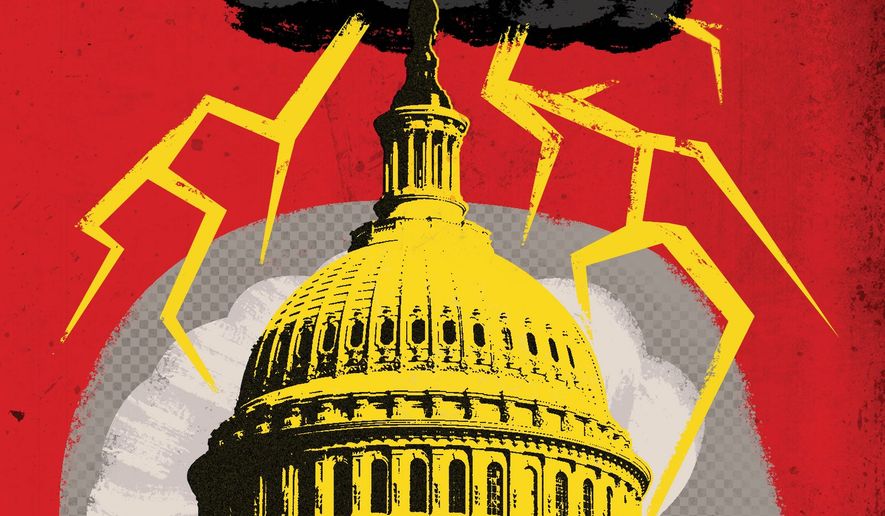OPINION:
Two men were recently granted the honor of being laid in state in the Capitol. Their lives were each instructive in their own way.
Let’s start with former Sen. Harry Reid. His life was a cautionary tale about what Washington can do to a person. He was born in a small town in Nevada and struggled for everything he achieved. No doubt that informed his early political life.
When he came to Washington as an elected official, he was a Western conservative — pro-life, pro-gun, in favor of strong borders and a believer in private property.
However, his desire to be an important person meant that over time he became less interested in his personal beliefs and more interested in the accretion of power and money. He reliably planted his vassals throughout the government to maximize his reach. He lied about Sen. Mitt Romney’s taxes. In his later years, he was reduced to working on getting the Las Vegas airport renamed after himself.
The other man who recently laid in state at the Capitol was, of course, former Sen. Robert Dole.
Dole, like Reid, was a child of America’s vast empty spaces. He grew up in the Depression. He played basketball and football at the University of Kansas before enlisting to fight in his generation’s war, during which he was grievously wounded.
Dole found his way to Washington, where he found himself consistently in leadership roles despite, or perhaps because of his lifetime physical struggles and limitations. He was chair of the Republican National Committee. He ran for vice president with former President Gerald Ford. He was the majority leader of the Senate. He ran for president in 1996.
His career was not characterized by uninterrupted success, but it was characterized by constant devotion to the needs of his fellow Americans, especially Kansans.
A remarkable philosophical consistency also marked his time in Washington. He came to Washington as an advocate for limited government, the right to life, the Second Amendment and the usual set of issues that folks on the right side of the spectrum favor. He managed to retain most or all of his fealty to those issues throughout the entirety of his career, despite the constant pressure and enticements from the swamp to hedge or abandon his beliefs.
Few if any of Reid’s eulogists mentioned how pleasant he was. Alternatively, almost every single statement associated with Dole’s death mentioned how productive and pleasant it was to work with him.
Of the two men, there can be little doubt whose example is worth following, who made the nation a better place and who stayed the truer course.
It’s easy to hate Washington sometimes because the smart kids in town tend to lionize all the wrong people, especially in death. We have to listen to long, mostly inaccurate, eulogies about people who were not good. At the same time, the town tends to avoid telling the simple truth about great Americans.
In the early days of Imperial Rome, Gaius Caesar Augustus Germanicus, better known as Caligula, either threatened to or did make his horse (Incitatus) a Roman senator. When one learned that in Latin class, it seemed insane, but upon reflection, it may have been a perfectly rational commentary on how Rome judged its senators.
Two former senators recently laid in state in the Capitol. One of them certainly deserved the honor. The other one, not so much.
• Michael McKenna was a fellow at the Dole Institute at the University of Kansas.




Please read our comment policy before commenting.